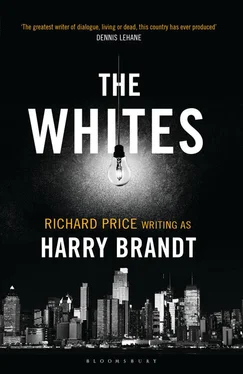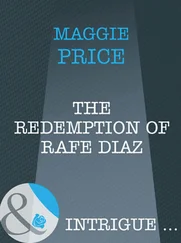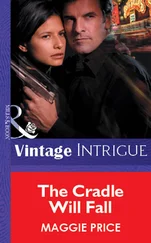Pavlicek’s tone was crisp and snappy and jarringly unaffected by the tears that slipped down his face in sheets. “I mean, I never thought our friend was the greatest mortician on the planet, but this is ridiculous.”
“Maybe he just doesn’t get to work much on white people,” Billy said carefully.
“And see, I put this in,” pointing to his own gold shield tucked into a corner of the casket. “And this,” lifting out a framed photo of the two of them taken in Amsterdam a few years earlier. “And this,” a snapshot of Junior as a toddler with his mother before she tried to drown him. “I really debated putting that one in, but…”
The disconnect between voice and tears continued, Billy wondering how long he could keep it up.
“You ever read that?” Pavlicek asked, pointing to a paperback copy of Steppenwolf near Junior’s feet. “Last year he told me that it changed his life, so I tried to get through it a few times to see what he saw,” the tears finally beginning to climb into his throat, “but honestly? I thought it was crap. Anyways it’s all over now, right? All over but the shoutin’.”
“Johnny,” Billy said, stepping back from Junior’s body. “I’m dying for you.”
Embarrassed by his choice of words, Billy began to apologize, but he needn’t have bothered, given that Pavlicek had already turned away and was now engaged in giving Ray Rivera, father of the murdered Thomas, the same manic tour of the coffin and its contents as he had given Billy.
They were all there with their families, those who had families: Yasmeen, Dennis, and the girls; Redman, who had prepared the body but turned the service over to his father so he could participate purely as a mourner, standing with Nola, Rafer, and two of his six or seven other sons; and Jimmy Whelan, who at least had the sense for once not to bring a date.
They all made some sort of contact with Billy, mostly sober nods, a few terse greetings, Yasmeen going so far as to hug Carmen and make a quiet fuss over the kids. But for the most part they kept their distance, which he thought was more about letting sleeping dogs lie than anything else, and he was fine with it. He preferred it.
“I believe it’s time,” Redman’s father announced with soft authority, “for us all to be seated.”
Junior apparently had been utterly indifferent to the notion of any kind of God, and so Pavlicek, no Bible beater himself, passed on having any kind of religious celebrant and instead turned the program over to his son’s friends, who served up half a dozen well-spoken homages, an acoustical duet on “I’ll Fly Away,” and a teary solo of “Angels Among Us,” sung by a young woman who had been the closest thing Junior had had to a girlfriend in the last year of his life.
When the woman returned to her seat, a retired detective from Bronx Homicide, not on the program, spontaneously got up and sang an a cappella version of Eric Clapton’s “Tears in Heaven,” which had half the room weeping like babies, including Carlos and Declan, hardly more than babies themselves. Billy didn’t know what unnerved him more, his two sons’ intuitive empathy in a room beyond their experience or the sight of Jimmy Whelan, the childless, mateless, eternally diffident ghetto harem keeper, sobbing more loudly than anyone else. As for Billy himself, the last couple of weeks had utterly tapped him out, and it would take a lot more than a sad pop tune with a painful backstory to get him weeping.
Redman Senior, seemingly singing directly to Junior’s father, closed out the concert with “The Battle Is Not Yours.”
And then it was his time, Pavlicek rising from the front row, giving his back to the room as he silently leaned over the coffin — Billy could hear him whispering something to his son, but too indistinctly for anyone to make out — then finally turning to the assembled, the expression on his face near homicidal.
“I don’t know if anyone came here to celebrate John Junior’s life, but I certainly didn’t,” he said, gripping the podium as if he wanted to crush it. “I am here before you, I am here among you, to rage and curse God for the arbitrarily murdering fuck that he is, not that I’m the first parent ever to feel that way, and to grant myself at least one afternoon where suicide would be logistically difficult.”
Tickled by the profanity, Carlos looked up at Billy and grinned.
“You know, you read the papers after a young man dies in this city, someone’s always saying, ‘He was just starting to get his life together, he was just talking about going back to school, getting his GED, getting a job, talking about being a real father to his daughter, talking about getting away from the ’hood, about enlisting, about marrying his fiancée, he was just about to do this, to do that…’ All these ‘just’s, whether they were true or not, because they all died young and ‘just’ was all they had, tomorrow was all they had. And the same could be said for my boy. He was ‘just’ about to finish his schooling, he was ‘just’ about to find his own way in the world, ‘just’ about to show me the man that now, now, he’ll never get to be, the man that over the years would have null-and-voided every hardship, every heartache I’ve ever endured in my life.”
Pavlicek paused, returned to the coffin as if for a quick consultation, then turned back to the seats. “You want to hear what a great kid he was? How his heart was pure gold? How he loved life, loved people, loved a challenge, all that boilerplate et cetera, et cetera? For those of you who want to hear all that, consider it said. The fact of the matter was that he was just about to be, and now he’s not.”
Looking around the room Billy noted that all three of the WGs were in tears, their faces in various states of contortion. Even Redman, king of the poker face and impresario of seventy-five to a hundred memorials like this every year, was swiping at his cheeks with those mile-long fingers of his.
They had all killed or been complicit in a killing, out of passion but clear-eyed and purposefully, but they had no problem giving in to their grief when it came to one another. He had nearly lost his mind trying to bring them to justice, turning on his longtime friends in order to do what was right, what he thought was right, and as a result his own eyes on this day were as dry as sand. Still, they had all been so tight over the last two decades, had gone through so much together, and for one mad minute, Billy’s anger at them for excluding him from their murderous plans trumped his outrage at what they had done. But instead of passing, the anger lingered, Billy wondering if this pop-up fury he was experiencing over having been shut out from this most desperate of compacts between friends hadn’t been a part of his anger at them since the beginning.
“There’s some people in this room right now,” Pavlicek said, “who gave twenty years or more to the Job, myself included. We’ve seen it all, handled it all, and when a young person dies we’ve all walked up the stairs, knocked on the doors, and delivered the news, between us, to an army of parents. We’ve caught them on their way to the floor, carried them into the bedroom or living room, then gone into their kitchens and brought them water — over the years, an ocean of water, glass by glass by glass. And so, after all that, we think we understand what it must feel like to be one of those parents, but we don’t. We can’t. I still can’t. But I’m getting there.”
Billy reflexively looked across the room at Ray Rivera, expecting him to be nodding in agreement, but instead saw a profile carved in stone.
“But so my son…” Pavlicek paused, looking about himself as if he had misplaced something, then seemed to give up on finding it. “I think I just want to read this,” he said, pulling an envelope out of his jacket pocket and removing a single page cut from a book. “This was handed to me today by a friend, and it’s as good a farewell to him as anything else.”
Читать дальше












